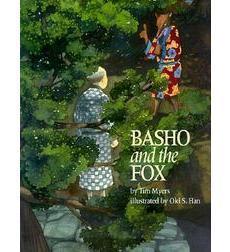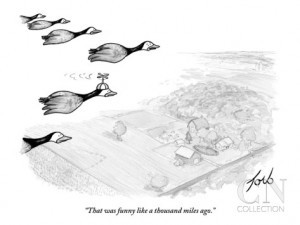Harriet Scott Chessman's Blog
March 29, 2017
Writing My First Libretto
This short essay about writing my first libretto appeared in Lit Hub o n March 28th, 2017. http://lithub.com/tag/harriet-scott-chessman/
n March 28th, 2017. http://lithub.com/tag/harriet-scott-chessman/
October 19, 2016
Discovering your characters
How do you discover who your primary character(s) will be, in a story? Often, for me, the character comes first — I see her or him, leaning against a counter, or walking with a friend on a golf course, or chasing after a child, and the story comes to me through the character. Sometimes, though, it’s not so quick or direct, and I have to search — especially when the story is also one I am searching for, because it appears embedded and half-buried in history.
With Edgar Degas’ winter sojourn in New Orleans, in 1872-3, it was his gorgeous, odd paintings that touched me, and moved me. Each of them appeared to enfold some part of a larger story — possibly one filled with conflict and sorrow. I wanted somehow to write about that whole winter — to discover why these paintings of his cousins and family members held such intensity and power. I tried so many voices: Edgar’s; a servant child’s; 10 year old Josephine’s (Edgar’s cousin Tell’s daughter from Tell’s first marriage); Didi (Tell’s older sister). In each case, I was happy with some elements of the voice and the implicit story, yet I felt frustrated, because I just couldn’t get inside the character with honesty and a sense of truth.
 Portrait of Estelle Musson Degas, by Edgar Degas (1872), in The New Orleans Museum of Art
Portrait of Estelle Musson Degas, by Edgar Degas (1872), in The New Orleans Museum of ArtOne day, a new voice came to me — I don’t know how. Maybe I was simply ready for it. I wrote it down, just a floating paragraph, and I knew — this was it! I had discovered a voice for Tell (Estelle Musson Balfour De Gas, Edgar’s cousin and sister-in-law, who had lost her sight in her twenties). And with Tell’s voice, came her character. With each word, I found out more about her: how honest she was, and pragmatic, and loving. Also, how carefully she resisted knowing too much of the truth about her own marriage and her relationship to her cousin Edgar.
I had thought I couldn’t possibly write in this voice, because I wasn’t sure what it would have been like to have lost my sight by the age of 29, and to be pregnant with my fourth child in a rented mansion in New Orleans. How does a fiction writer ever have the courage to write a story outside of her or his own experience? I have to say, though, in this case, I got lucky. I started to listen to Tell, and she was happy to let me in. It was a great relief. From that first floating paragraph on, I came to know her, as fully as she would let me.
September 29, 2016
Listening for your Reader
This morning, as I contemplate the publication of a new novel — something I’m so happy about — I am aware of how worried I am too. Ach! I am sure a lot of writers worry about how a new book will be received. You feel lucky to have had the chance to write it, and to have found a welcoming publisher, and yet the thing is, once a book is in print, it’s on its own. You can’t help it anymore; you’ve done the best you can in writing it; and now if you’re lucky you breathe, open your hands, and let it go.
What encourages me this morning is the thought that this listening out into the world for response is actually something that folds right into the creation of a work of art — at least, it does for me. As I struggled over the course of ten years to find my story about Edgar Degas in New Orleans, I had to listen constantly to the reader inside me. How else do you know what is working in a story, and what isn’t? It’s that inner reader — in my case, an honest, sensitive one, easily bored, who yearns for the story to make an emotional connection, to create a powerful (if quiet!) pull —– it’s that inner reader I’ve been listening to for years, as this reader has listened to my story grow, flounder, make false turns, get cut, grow again, start fresh, flounder again.
Writing IS listening. And listening is so precious, both in life and in the creation of art. You can’t control the ways in which other people will listen to your art, but you can reassure yourself that you’ve listened as carefully and wholeheartedly as you can to this story as it’s struggled to become written.
So today I wish you a fruitful listening, on all fronts: writing and love, politics and culture. (If only people COULD listen to each other more carefully and compassionately in this crazy election season!)
I add to the wonderful quote from Samuel Beckett in “Worstword Ho” (“Fail again. Fail better”), “Listen again. Listen better.”
July 8, 2015
The luscious, sensual world
How do you slow down, and live in this crazy world? I think poets of haiku for centuries have discovered ways of doing this. One inspiration: the glorious picture book by Tim Myers (illustrated by Oki S. Han), Basho and the Fox.
Here is Basho:
“With the scent of plums
on the mountain road — suddenly
sunrise comes!”
May your day be filled with the beauty of ordinary things!
June 16, 2015
On writing for children
The genre of children’s picture books remains the field I love most in all of literature — and, as any writer for this age group will tell you, it looks easy, but is actually . . . well, kind of impossible.
Maybe the first step is to lighten one’s load of all that being a grown up involves. To remember how the world looks and feels to a child.
What better way than to laugh over some good cartoons? Cartoonists are brilliant at accessing the funny bone, and the artifice-slicing, honest viewpoint.
Here is a cartoon I often come back to, for delight and inspiration. It’s by a wonderful cartoonist, Tom Toro.
June 8, 2015
A writing morning leads to the morning of a story
“Morning here is not like any mornings Hannah Pearl has ever known.”
Sometimes a first sentence surprises you, and you just thank the spirits of your writing morning. You know it’s a good start, because it opens a door to a whole landscape you can start to discover. As soon as this opening announced itself, for a short story to be called “Once, Something,” I started wondering, what other mornings has this woman known? I knew she was an old woman, who had lost an ocean of memory, and I had to know: what remained for her?
Over time, this short story became a chapter in a novel filled with seven such interlinked stories: Someone Not Really Her Mother. My character’s morning opened up into glimpses of the story of Hannah’s, her daughter’s, and her granddaughters’ lives.
I have so cherished the chance to come back to this novel, after eleven years. This is unusual, for a writer, to have this chance! With the insightful and astute help of my publisher Mark Cunningham of Atelier26 Books, I have combed through this fiction a few times, catching this and that, pruning here, adding there, making sure the seeds of the story have scattered in the way I wish, getting the shapes and colors into a satisfying whole.
I hope you will enjoy entering into this landscape, through this particular fictional morning, “not like any mornings Hannah Pearl has ever known.”
February 5, 2015
Words, Glorious Words
I am becoming reacquainted these days with a character I created fifteen years ago — Hannah Pearl. She’s the central character in my novel Someone Not Really Her Mother — in fact, she’s the mother (and grandmother) who has become not really herself. Alzheimer’s is making incursions into her inner landscape of memory and language.
What pleases Hannah are the bright moments of words emerging, bristling and dancing again in front of her — words signifying items in the world again. Coming out to a restaurant with her baffled and loving daughter Mir, Hannah “enjoys the menu — Menu, it says, right at the top, with names of luscious-sounding things below: poached salmon with dill, lamb with rosemary, pear salad with goat cheese. It’s lovely to have all the names in front of you like that, in light golden lettering.”
On this wintry day, snow outside, I am grateful simply to have words. Cold though it is outside, I know the word “cold.” Snow, rhododendrons hunched together, deer tracks, gray sky, the sun more a felt presence than shining . . . and inside, books, desk, ceramic bird on desk, wooden angel holding a book . . . How lucky it is, how lovely, as Hannah says, to know how to name what is in the world.





